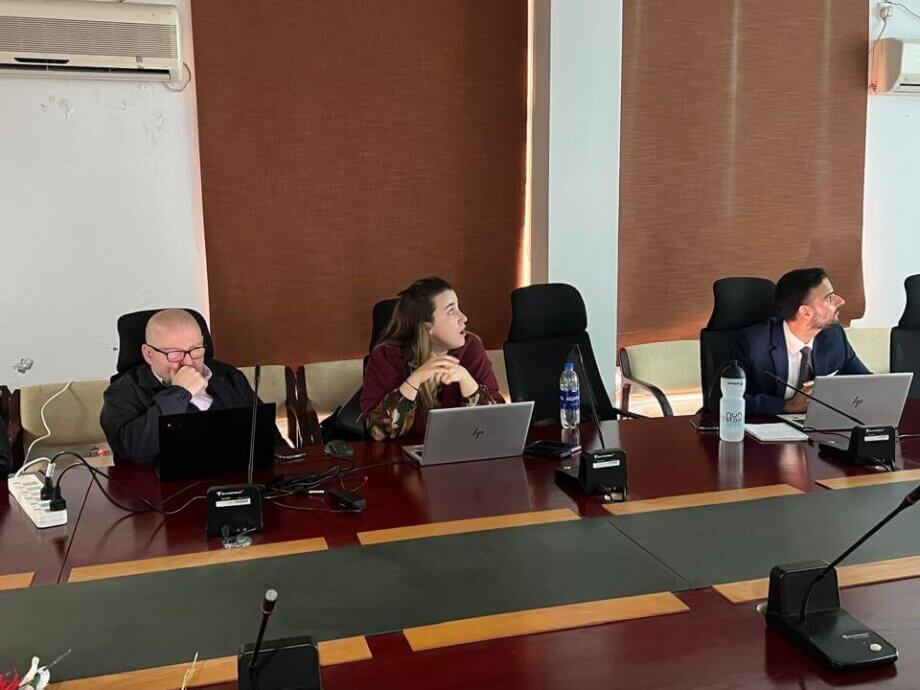China’s Sweeping 2024 Audit: A Turning Point for Fiscal Governance
China’s annual audit report for 2024 has revealed a sweeping campaign to rectify financial irregularities, discipline thousands of officials, and overhaul the country’s approach to public fund management. The findings, delivered by Auditor General Hou Kai to the Standing Committee of the National People’s Congress, have sent ripples through government agencies, state-owned enterprises, and the private sector, highlighting both the scale of past mismanagement and the government’s determination to enforce accountability.
At the heart of the report is the rectification of irregularities involving over 654 billion yuan (approximately $90 billion) and disciplinary action against more than 4,100 individuals. The audit scrutinized the implementation of the central government’s 2024 budget, major national projects, and the management of state-owned assets, while also exposing systemic issues in sectors critical to public welfare, such as education, pensions, and rural development.
What Did the Audit Uncover?
The 2024 audit was one of the most comprehensive in recent years, covering a wide array of government activities and financial flows. Authorities focused on both the central and local levels, examining how funds were allocated, spent, and, in many cases, misused. The audit’s findings paint a picture of persistent challenges in China’s fiscal governance, but also of a government increasingly willing to confront them head-on.
Misuse of Pension Funds: A Growing Concern
One of the most striking revelations was the misappropriation of basic pension funds by local governments. The National Audit Office (NAO) reviewed 4.1 trillion yuan ($576.9 billion) in pension funds across 25 provincial-level regions and found that about 60.2 billion yuan had been improperly used. Local authorities, under mounting financial strain, diverted these funds for purposes such as debt repayment, rather than supporting retirees as intended. This not only undermines the security of China’s aging population but also signals deeper fiscal pressures at the local level.
Infrastructure and Special Bond Fund Mismanagement
The audit also exposed significant problems in the use of funds raised through special bonds and central government budgets. Nearly 28 billion yuan ($3.9 billion) earmarked for 522 infrastructure projects was either left unused or spent on unauthorized purposes. Additionally, over 41 billion yuan in central budget investment remained idle due to slow project progress. In some cases, projects received more funding than their total planned investment, reflecting poor oversight and planning.
These findings highlight a critical challenge for Beijing: while fiscal stimulus is intended to drive economic recovery, especially amid a property downturn and external trade pressures, the effectiveness of such measures is undermined by mismanagement and a shortage of high-quality, feasible projects. As Michelle Lam, an economist for Greater China at Societe Generale SA, noted, “It’s just harder and harder to get qualified projects with years of over-investment.”
Education Funds: Widespread Irregularities and Impact on Students
Education, a sector vital to China’s long-term development, was not spared from scrutiny. The audit revealed extensive misuse of funds intended for rural students’ nutritious meal programs and broader educational development. In Hunan province alone, millions of yuan were falsely claimed through inflated meal day reports, misappropriated for staff welfare, or diverted for salaries. Similar issues were found in Shaanxi, Yunnan, Hainan, Shandong, and other provinces, with funds delayed, embezzled, or spent on non-compliant procurement.
In total, over 1,200 individuals were punished for irregularities in handling rural school meal program funds, and more than 4 billion yuan ($550 million) was involved in rectification efforts. The consequences were tangible: delayed or insufficient funding for schools, missed subsidies for kindergartens, and tens of thousands of students left without financial aid or proper nutrition.
State-Owned Enterprises and “Zombie Firms”
The audit also targeted state-owned enterprises (SOEs), focusing on the use and management of public resources. It found that some SOEs in 24 regions were holding onto 37 billion yuan from public funds, primarily to cover maturing debts and employee salaries, resulting in the formation of 11.2 billion yuan in implicit (hidden) debt. The report called for an end to credit supply for so-called “zombie companies”—loss-making firms kept afloat by government support—urging reforms to improve debt management and resource allocation.
Grassroots Corruption and Public Welfare
Beyond high-profile cases, the audit pursued grassroots-level corruption, identifying low-ranking officials who misappropriated funds and harmed community interests. In sectors tied directly to public welfare—such as elderly care, farmland development, and agricultural subsidies—auditors found a range of issues, from delayed payments to outright embezzlement.
Regulatory Crackdown: The PwC and Evergrande Scandal
Perhaps the most headline-grabbing consequence of the audit campaign was the regulatory action against PricewaterhouseCoopers (PwC) for its role in auditing the now-bankrupt property giant Evergrande. Chinese authorities imposed a record penalty of 441 million yuan ($62 million) and a six-month business suspension on PwC’s mainland China unit, after finding that the firm “turned a blind eye” to and “even condoned” Evergrande’s financial fraud.
The China Securities Regulatory Commission (CSRC) and the Ministry of Finance found that PwC Zhong Tian LLP failed to exercise due diligence, issued false audit reports, and failed to detect or report significant misstatements in Evergrande’s financial statements. The fallout was swift: PwC lost major clients, including state-owned giants, and faced an exodus of business and staff. The case sent a clear message to both domestic and international audit firms operating in China: regulatory tolerance for audit failures and complicity in fraud has reached a new low.
Broader Implications for the Audit and Accounting Industry
The crackdown on PwC and other audit firms, such as Deloitte (which was fined 211.9 million yuan and suspended for three months in 2023), has reshaped the landscape for financial oversight in China. International accounting networks are reassessing the risks of operating in China, as regulatory penalties can now far exceed the fees earned from audit work. At the same time, Chinese companies—especially state-owned enterprises—are increasingly turning to domestic audit firms, partly due to informal guidance from regulators and concerns over national security and data control.
These developments have raised questions about transparency and the future of foreign participation in China’s audit market. While some experts believe international firms will remain for clients with global operations, the trend toward domestic replacement is unmistakable.
How Is China Responding to the Audit Findings?
The government’s response to the audit’s revelations has been multifaceted and robust. By the end of March 2024, authorities had revised or established over 1,700 internal rules and procedures to close loopholes in financial governance. A “closed-loop” system for accountability has been implemented, involving problem identification, inter-agency coordination, supervision, and public reporting.
Key departments have set up dedicated task teams for targeted rectification efforts, significantly improving response times. Since May 2024, more than 430 serious disciplinary and legal cases have been uncovered and transferred to relevant authorities, involving over 1,400 individuals and 63 billion yuan in misused funds. The National Audit Office has solicited feedback from audited entities and issued corrective orders, with a commitment to track progress and report on full rectification by year’s end.
Sector-Specific Reforms and Systemic Changes
In the wake of the audit, several ministries and agencies have issued new guidelines and tightened oversight in vulnerable sectors. For example, six central authorities jointly released measures to strengthen the management and supervision of food safety and dietary funds in primary and secondary schools. In the area of social security, provinces have recovered subsidies fraudulently obtained and improved systems to prevent future abuse.
The audit also prompted calls for a new round of fiscal and tax reforms, better debt management, and the acceleration of a unified national market. The government is expected to broaden the sectors eligible for special local bond funds and explore new ways to use government borrowing for productive investments and social welfare spending.
Why Does This Matter for China’s Economy and Society?
The 2024 audit report comes at a critical juncture for China. The country faces a complex mix of challenges: a property market slump, rising local government debt, external trade pressures, and the need to sustain economic growth while improving social welfare. The audit’s findings underscore the risks posed by mismanagement, corruption, and weak oversight—not just to public finances, but to the broader goals of economic stability and social equity.
By exposing and addressing these issues, the government aims to restore public trust, ensure that funds reach their intended beneficiaries, and create a more transparent and accountable system. The crackdown on audit failures and financial fraud also signals a shift toward stricter enforcement and higher standards for both domestic and international players in China’s financial sector.
Expert Perspectives: Reform, Deterrence, and the Road Ahead
Experts see the audit campaign as both a deterrent and a catalyst for reform. Zhuang Deshui, deputy director of the Research Center for Government Integrity-Building at Peking University, commented that the intensity of rectifications and the number of people punished create a strong deterrent effect at the grassroots level, reflecting the authority of audit rectifications. He noted that audits are not just about identifying problems, but about filling gaps and identifying systemic loopholes, allowing relevant departments to address issues promptly.
Jens Eskelund, president of the EU Chamber of Commerce in China, emphasized the importance of predictability and transparency in the business environment, noting that tighter oversight could be a positive development if applied equally to all enterprises.
In Summary
- China’s 2024 audit report revealed the rectification of over 654 billion yuan in financial irregularities and disciplinary action against more than 4,100 individuals.
- Major issues were found in the management of pension funds, infrastructure investment, education funding, and state-owned enterprise finances.
- The regulatory crackdown on audit failures, exemplified by the record penalty and suspension of PwC for its role in the Evergrande scandal, marks a new era of financial oversight in China.
- The government has implemented systemic reforms, revised internal rules, and established new accountability mechanisms to prevent future misuse of public funds.
- These actions are part of a broader effort to strengthen fiscal governance, restore public trust, and ensure that economic growth is both sustainable and equitable.
- The audit’s findings and the government’s response have significant implications for China’s economy, the audit and accounting industry, and the country’s approach to public welfare and social stability.












